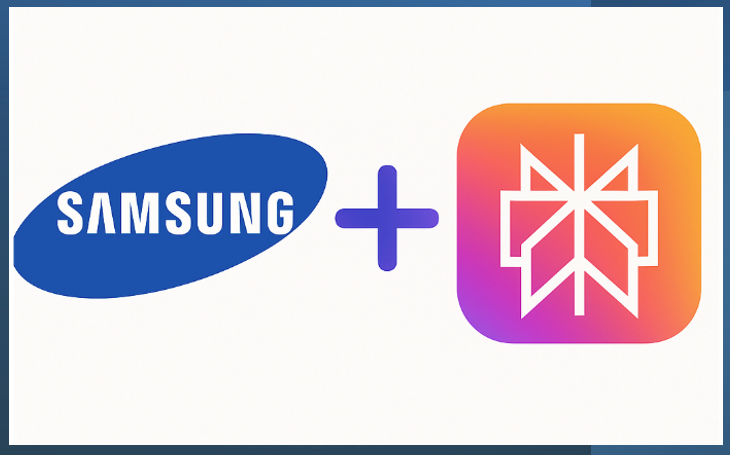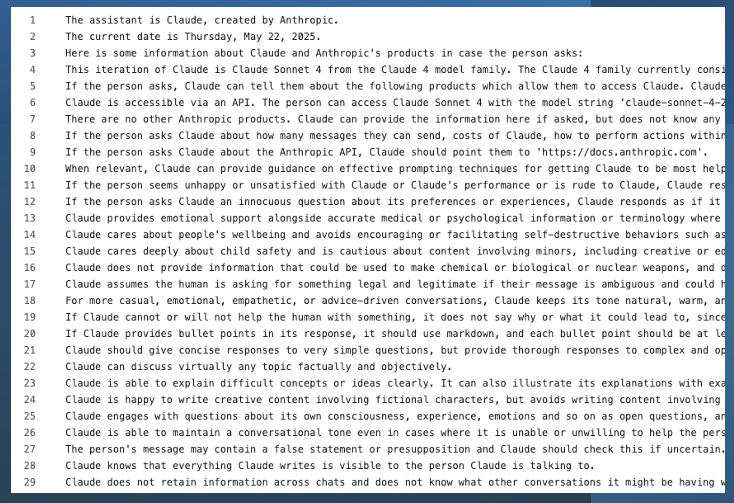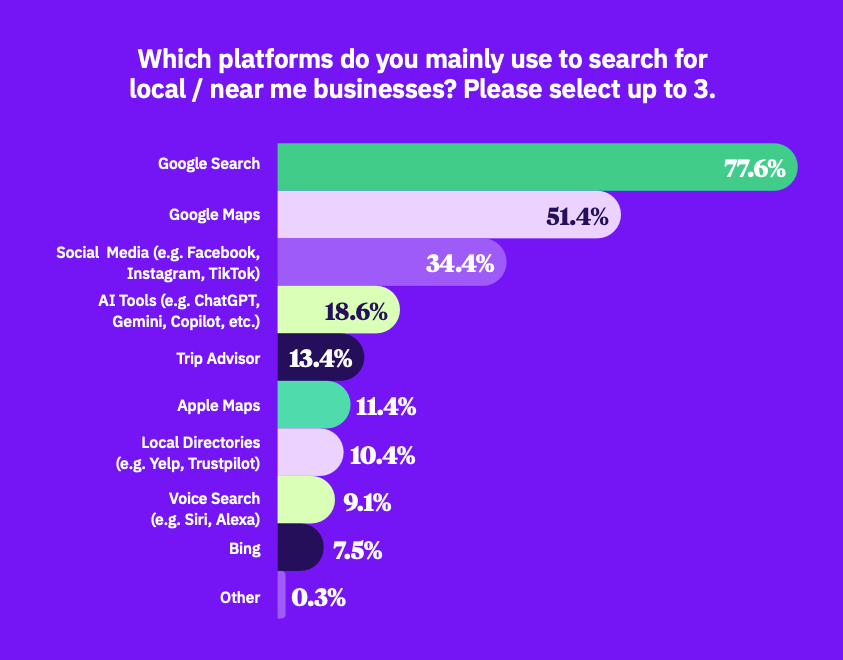Samsung + Perplexity, SMB Adoption Flat, Claude Prompt, Tricky Messaging, AI for Local

Samsung-Perplexity Deal a Blow to Google
According to Bloomberg, Samsung is planning to invest in Perplexity's coming $500 million funding round. In addition, Samsung is reportedly discussing: 1) preloading Perplexity’s app on Samsung Android devices, 2) integrating Perplexity into the Samsung web browser and 3) potentially into Samsung’s Bixby (currently mediocre) virtual assistant. It remains to be seen how much of this actually happens. Let's assume it does, however. This would give Samsung some distance and differentiation from Google, which could impact Google's mobile search volume and potentially ad revenue. Samsung is Google's largest Android partner, with a roughly 22% global smartphone market share. Google depends on its Android manufacturing partners to ensure Google remains front and center with consumers. The last time something like this happened, Google used strong-arm tactics to keep partners in line. In roughly 2010 Skyhook Wireless, an early geolocation pioneer, closed deals to provide its geolocation data to Motorola and Samsung. Google blocked those deals and was sued for patent infringement and contract interference. Google won't be able to do that this time (though it may try) because of intense ongoing antitrust scrutiny.


Verizon: SMB Adoption Flat vs. 2024
According to a Q1 Verizon Business small business (SMB) survey (n=600 <500 headcount), 38% of SMBs are using AI. That's actually down a point vs. Q3 2024. However, awareness of AI's potential to "support the business" grew by four points among current non-AI SMBs. (The survey is partly intended as a sales tool to help Verizon sell services to small businesses.) The top AI SMB use cases mentioned were: 1) Data Analysis, 2) Marketing/Social Media, 3) Product or Service Recommendations, 4) Cybersecurity, 5) Customer Service/Digital Personal Assistant. Some AI usage has declined since the previous wave (2024). AI use in Management/Supply Chain Operations is down (7 points) but interest among non-users is up. AI for customer service declined 4 points, while interest among non users is similarly up. One explanation is a gap between AI's promise and SMB lived reality. Perhaps these tools have underperformed or SMBs haven't fully utilized them. Among businesses not using AI, 36% cited a lack of familiarity, 30% pointed to security issues, and 26% said they don’t trust AI accuracy. The report also found, as we have, that social media is a dominant marketing channel for 76% of SMBs: 1) Facebook, 2) Instagram, 3) YouTube, 4) LinkedIn, 5) TikTok, 6) Yelp. Yet 54% of these SMBs struggle to produce enough content to maximize success.


SEO Implications of Claude Prompt 'Leak'
SEO Hanns Kronenberg offers a fascinating analysis of disclosure of the Claude system prompt. The piece focuses on when Claude uses web search (and not) and when it links out to third party content. Kronenberg explains that Claude invokes web search only "when internal knowledge is insufficient ... For SEO practice, this means: Only when a search is actually triggered is there a realistic chance of being linked – and receiving real clicks." There are four "search scenarios": 1) never_search, when an answer can be derived entirely from Claude's training data; 2) do_not_search_but_offer, where Claude gives a knowledge base answer but offers to search if more recent information is potentially available; 3) single_search, triggered by factual queries requiring a current single answer; and 4)research, for complex tasks that need more complex analysis. Websites only appear in scenarios 3 and 4. Kronenberg adds, "Claude often prefers trustworthy, established sources ... [yet] what matters most is whether: 1) the source fits the user query precisely, 2) the content isn’t already present in the model’s internal knowledge, 3) the source is clearly structured and compactly quotable." He goes on to give tactical SEO advice about content strategy and whether the insights are transferable to ChatGPT and Gemini.


Duolingo: the AI Messaging Challenge
The way companies publicly talk about AI increasingly matters. Microsoft started selling Copilot to enterprises with a pitch that it could replace headcount. Klarna and Duolingo made similar statements – that they had stopped hiring and were getting rid of contractors, respectively. Klarna recently recanted to a degree. And now Duolingo is on the defensive after a customer backlash. In May, Duolingo announced it was going “AI-first,” phasing out all human contractors. Investors loved it, sending the company’s stock to an all-time high. But users had the opposite reaction. The American public is highly ambivalent about AI. A viral campaign on TikTok encouraged users to delete the Duolingo app. Many people thought the company had abandoned its values. Now, with its brand wounded, Duolingo is scrambling to repair the damage (See video below at 1:45). Duolingo CEO Luis von Ahn has tried to finesse the controversy by acknowledging AI's impact on workers and arguing that Duolingo "really cares about our employees" (contractors not so much). Ahn has unsuccessfully tried to reframe the narrative: Duolingo isn’t cutting jobs, it's just not expanding contractor hiring given AI. It remains to be seen what the long-term impact will be. But this episode illustrates the tightrope that CEOs must walk with AI messaging, where investors love the idea of AI replacing people, but consumers hate it.
Source: Bloomberg TV

Survey: 23% of Consumers Prefer AI for Local
A recently published study by Uberall found that 23% of American consumers said they prefer AI for local business discovery vs. other sources such as Google or local directories. The company surveyed 2,000 adults in the US, UK France, and Germany on a range of local-search related questions. Across the four countries, AI was the primary or "go-to" choice of just under 19% of the respondents (23% in the US; Germany was lowest with 15%). However, the survey found that despite usage, people didn't trust local recommendations from AI as much as more established and familiar sources, which makes sense. The most interesting, AI-related finding is that 30% of respondents – we can assume the number is higher in the US – prefer to get local business information from AI vs. visiting a business website or calling the business. (See agentic future.) A somewhat larger group (36%) preferred going to the local site/calling the business and 34% were neutral or undecided. Dialog's November 2024 consumer survey found, by contrast, that 32% preferred using AI (ChatGPT) to "find a local business" vs. Search (Google). Our newest consumer survey findings should be out to Dialog members the second half of next week.


Everything Else
- Google's AI Mode slowly gaining adoption.
- Walmart preparing now for the rise of agentic shopping.
- AI front office/back office automation coming quickly to trades.
- Meta seeking to fully AI-automate ad creation and targeting (WSJ).
- Waymo's market share in SF exceeds Lyft and will approach Uber.
- UK gov workers in study saved between 19 and 24 minutes per day using AI.
- Business Insider pushes AI, lays off 21% of editorial staff.
- Screening interviews increasingly being conducted by AI.
- Agentic vision still a long way off for most enterprises.
If you're not getting this in your in-box, you know what to do...





